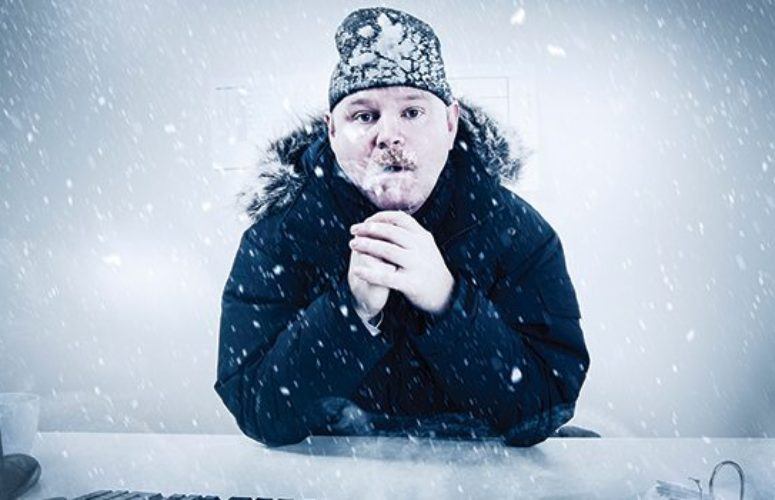
Energy-Saving Tips and Precautions for the Winter
Don’t let the cold weather put a “freeze” on your bank account.
By Alex Marcheschi, Contributing Writer On Nov 23, 2016Every year, when the winter rolls around, small business owners across New Jersey are faced with the dilemma of efficiently heating and powering their businesses without breaking the bank. Fortunately, there are many practical energy-saving tips and tricks that can be utilized. In this article, New Jersey Business speaks with five local energy industry professionals about energy cost savings, gleaning useful advice for the winter season. From tips about window blinds, to the tax breaks offered for solar panel installations, there are many ways to save.
Low Cost Solutions
The most practical and attainable way to save on energy costs in the winter is to simply turn off all equipment and lights, “after hours,” including computers and any other office equipment. On a similar note, lowering the temperature of workspaces when they are unoccupied is always smart. Using a programmable thermostat to adjust temperature setting based on the time of day is also recommended, according to Courtney McCormick, vice president of Renewables and Energy Solutions at Public Service Enterprise Group (PSEG).
Offering additional advice that small business owners might not think about, McCormick adds, “Opening window blinds, especially the ones on south-facing windows, helps increase heat gain and assists heating equipment. Keep your windows and exterior doors closed as much as possible. Employ a regular air filter replacement and tune-up schedule, and eliminate any clutter that is blocking vents or air intakes.”
On top of all that, you should still be analyzing your energy-use tendencies. This is where a demand meter can come into play, according to Brad Martin, Genie Retail Energy Inc. senior vice president of marketing, mass market sales and services.
“A demand meter is a benefit because it provides insight into the factors that are driving the energy bill, such as what equipment is running and at what time,” Martin says. “Generally speaking, with most people using natural gas for heating in the winter, this usage – and bill – will increase as the electricity usage and bill will decrease.”
Utility Best Practices
Stephanie Huhn, a natural gas, electric, and energy solutions expert with Direct Energy Business, believes that energy consumers are best off when they are properly informed.
“I think an educated consumer is the best consumer. Therefore, you should understand what the utility is charging and shop that cost against a third-party supplier,” she says. “Understand the differences between working with a supplier and a broker, and the benefits each bring to the table.”
According to Huhn, small business owners can save 10 percent to 15 percent on energy expenses by choosing a third-party provider. “This can also help a business with budgeting because the differences in the utility bill can vary greatly each month, depending on usage. If you buy from a third-party supplier, it’s a fixed cost. This enables business owners to better project spending costs,” she explains.
It’s also important to reevaluate and change your rate down the line. Additionally, it’s also extremely important to keep the correlation between natural gas pricing and electricity pricing in mind.
As Martin explains, “Many components go into electricity pricing, but one major factor is the cost of natural gas because it is a primary source for electric generation. Electricity prices generally reflect what’s happening with natural gas prices. So, if you’re not in a fixed-rate product, and we have a cold winter where natural gas prices increase, be prepared to see an increase in both your natural gas and electricity rates.”
Solar Power in the Winter
From many standpoints, solar is a great long-term investment. It controls how many kilowatt hours one uses, limits the utility cost of transmission and distribution, and brings the overall energy profile down to be more efficient.
“It helps you year round, because when you affect the transmission and distribution, you get the benefit from the summer and the winter,” Huhn says. “It eliminates the cost component as well as consumption. It’s a dual effect. It hits both parts of the equation.”
However, there are still some drawbacks when relying on solar power in the winter.
“There are fewer daylight hours in the winter, which impacts solar generation,” McCormick says. “Solar can also be impacted by snowfall that covers the panels. It’s important to remember that snow should not be manually removed from solar panels because the glass panels can be damaged by shovels.”
A small business owner should also keep in mind the long-term financial benefits that come with installing solar equipment, as CJ Peterson, executive director of sales and business development at Diversegy explains.
“What’s interesting about solar, especially in New Jersey, is that the rebates and the incentives can be so good, that they can literally pay for the product itself. The opportunity with solar is a multi-pronged approach,” Peterson says. “It gets you off the grid and creates more energy independence for the business; you receive tax credits; and it reduces your overall energy usage and gives you the feel-good factor of: ‘Hey, I’m doing something good for the planet.’”
What To Do Before and After Snowfall
If a substantial amount of snow is expected, make sure the gutters on the building are clear and remove any debris from the roof. After a significant snowstorm, maintain access to all solar equipment and rooftop equipment on site including inverters, HVAC units, fans and walking aisles.
Peterson also says that solar panels are surprisingly helpful after a snowfall.
“Your solar panels will actually assist with snow melting from a two-fold standpoint,” he says. “First, they’re black. So, in terms of absorbing heat, they will do that and melt the snow faster. The second thing is, because of how they’re positioned, snow will slide right off.”
New Jersey Board of Public Utilities President Richard S. Mroz has important advice for all small business owners if power is lost during a storm.
“First, notify your power utility. … Do not assume the electric company knows. Keep windows and doors closed to retain heat, and keep refrigerators and freezers closed as much as possible,” he says. “Use extreme care if using a portable generator, and follow instructions for proper use to protect you and utility workers who can be electrocuted if the generator is feeding power back onto the grid. Check utility company websites for additional usage information. Additionally, never bring portable heaters, generators or fuel inside.”
Lighting Advice
Upgrading lighting may be the best solution a small business can implement to save on energy and heating costs during the winter.
“Lighting poses a big energy cost for many businesses, especially during the winter months since there is less daylight,” Mroz says. “To conserve energy and save on energy bills, we suggest businesses utilize high energy efficient LED lightbulbs, occupancy sensors that automatically turn off lights, smart power strips for computers, and electronics that are Energy Star rated.”
Long-Term Solutions
One should always insulate water heaters and supply pipes, and install ceiling and wall insulation. If equipment is already properly insulated, make sure to check it. Installing ceiling fans to circulate warm air and push it down from the ceiling is also helpful.
Remember, the greatest cost savings comes from the kilowatts you don’t use. As Huhn said previously, “An educated consumer truly is the best consumer.
“It’s more about being smart. If you can live with your thermostat at a slightly lower setting, that helps,” Huhn says.
There are many easy solutions to implement, and these all add up to energy savings. Huhn adds, “It’s all about trying to achieve a holistic approach to energy consuming.”
Related Articles:






